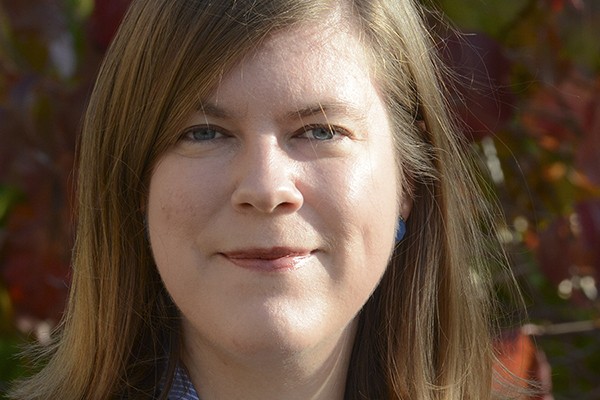 Business professor Catherine Shea has found that people looking to get ahead shape their social networks to obtain advantages in the workforce.
Business professor Catherine Shea has found that people looking to get ahead shape their social networks to obtain advantages in the workforce.
New research out of the University of Windsor suggests a novel strategy to those looking to get ahead in the workplace: take a closer look at your social network. The study suggests that highly motivated employees see their workplace colleagues differently and form differing patterns of social relationships, helping them to get ahead in their careers.
“Personal goal pursuit as an antecedent to social network structure” is published in this month’s issue of Organizational Behavior and Human Decision Processes by Catherine Shea, an assistant professor of management at the University of Windsor’s Odette School of Business, and Gráinne Fitzsimons, an associate professor of management at Duke University’s Fuqua School of Business.
“Typically when we think about achieving a promotion at work, we tend to credit these kinds of accomplishments to the internal characteristics of an individual,” says Dr. Shea, the article’s lead author. “We say things like, ‘I got a promotion because I worked hard’ or ‘I got a new job because I am intelligent.’ These explanations overlook a vital factor that provides individuals with opportunities to get ahead in their careers: the individual’s social network.”
One important aspect of social networks is whether members’ career contacts are connected with each other. This distinction is important for obtaining new and novel information, explains Shea.
“Two individuals who know each other will typically talk and have similar view points and information; if there’s a new job or new opportunity, it’s likely that two connected individuals will both know the same information,” she says. “Two people who are not connected to each other provide double the unique sources of information and ideas, such as job leads or innovative ideas, which individuals can use to their advantage.”
Career-motivated individuals are drawn towards disconnected individuals. In one laboratory study, individuals motivated to advance in their careers were more likely to endorse statements such as “I tend to contact my coworkers only when I need something from them” and “A relationship is important to me as it helps me accomplish my goals.”
Viewing coworkers in this career-facilitating fashion translated into seeking out more unique, disconnected sets of coworkers and advisors in a mission to obtain the best career resources for themselves. These effects translated into the real world — highly career-driven MBA students were more likely to form disconnected sets of friends and be at the centres of their social networks. They had the same number of contacts in their networks as those less career-driven, but the key difference was the lack of connectivity among their connections.
“In a more competitive economic environment, getting ahead in your career is no longer a straight-forward, linear process between working hard and advancing in your career. Individuals need to be savvy in how they seek out and connect with others in their social networks,” Shea concludes.
The next time you need advice to get a promotion or solve a challenging problem in your career, you can benefit more by seeking out unique information from disconnected individuals than from two people who know each other.
